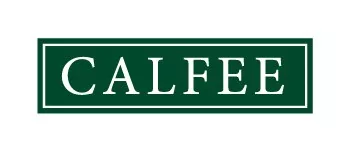- within Environment topic(s)
- with readers working within the Environment & Waste Management and Utilities industries
Sometimes, things really can be too good to be true. Imagine a scenario where an American manufacturing company is approached by a potential international customer/seller of machinery claiming they know the best way to avoid either party paying heavy tariffs. In this recent, real-life situation, the customer explained that the company should purchase a packaging machine and then sell it back to the customer, enabling the parties to avoid paying heavy tariffs. Right away there were several red flags indicating a potential high-risk transaction. Luckily, the company knew to put a call in to their legal counsel to investigate.
Key takeaways from the investigation:
- Avoiding heavy tariffs. The seller suggested that the company importing the machinery would avoid tariffs, while the seller would be subject to those tariffs. In particular, the seller referenced tariff quotas, which apply to certain types of goods, but not this machinery from China. Although a tariff exclusion could be requested, the company would need to prepare and file an exclusion request, and exclusions are granted on a case-by-case basis. Setting aside the tricky idea that the seller was asking the company to help them circumvent tariffs, the company would need to do a fairly significant amount of work in order to earn the commission being offered to them.
- Conflicting Harmonized Tariff Schedule (HTS) codes. The seller provided the company's legal counsel with the alleged HTS code for the machinery. However, when legal looked at the HTS code more closely, the final 2 digits in the 10-digit code were incorrect. Although some products only have an 8-digit HTS code, there is a formula for converting that 8-digit code to a 10-digit code, which was not followed in this instance.
- Knowing your customers. One significant item that the legal team had stressed time and time again to the company was the need to really know its international customers. Particularly in a world that is very digitally focused, it is important to know that a seller or customer is who they say they are. A law firm should typically start with running the potential customer (here, the seller of the machinery) through the Office of Foreign Assets Control's (OFAC) sanctions list. When the seller in question didn't appear on the list, additional research was conducted. This led to uncovering that the seller was, in fact, a textile manufacturer, which made the sale of this particular machine unusual. Additionally, not only was the website of the seller not active, but the seller was communicating with the company through an Outlook.com email address instead of a company-issued email address. While it is sometimes true that companies might have unusual methods of doing business and the renewal of a domain can slip, when questioned if this was typical of this seller in particular, the company could not confirm one way or the other. Also of concern was the seller's "generous" offer to handle the customs and entry of the machine into the United States, despite being a Chinese entity.
Overall, engaging in this unconventional transaction would involve putting a lot of trust in a seller who was hardly known by the company and with whom they had no previous relationship. On top of everything else, the company's role as the importer of record also posed a potential liability risk.
Once presented with the above findings and red flags, the company was urged to try to contact the seller via telephone to clear things up. In doing this, the company successfully avoided this "opportunity," which turned out to be a scam.
When it comes to international trade and heavy tariffs, a company's best bet is to follow the right protocols and call on your legal counsel if something doesn't seem quite right.
The attorneys at Calfee, Halter and Griswold are happy to answer any questions your company might have when it comes to import/export and tariff concerns.
The content of this article is intended to provide a general guide to the subject matter. Specialist advice should be sought about your specific circumstances.


